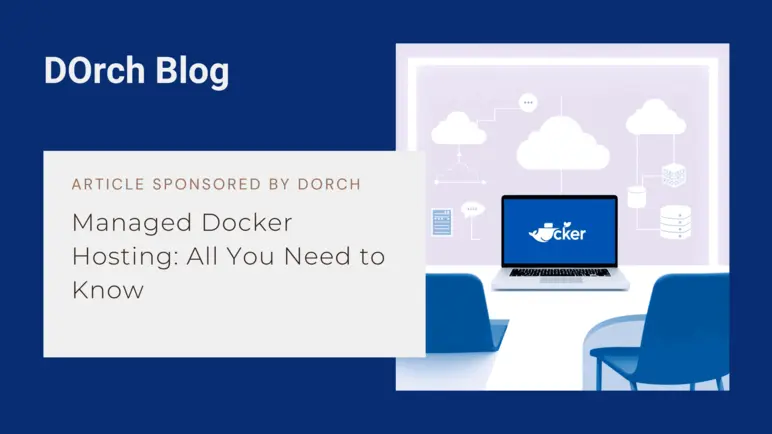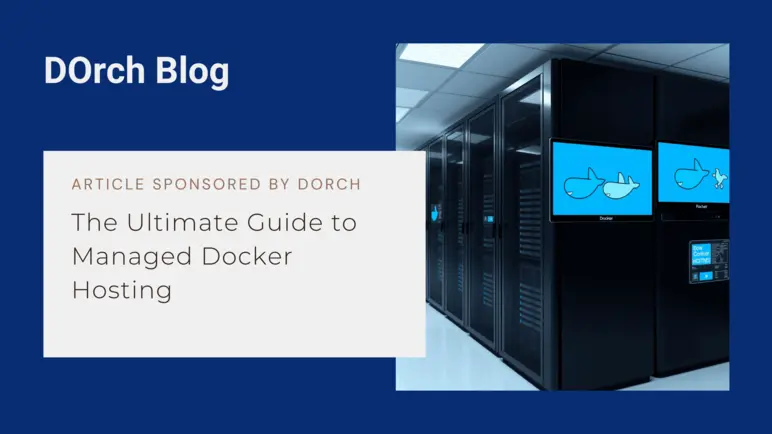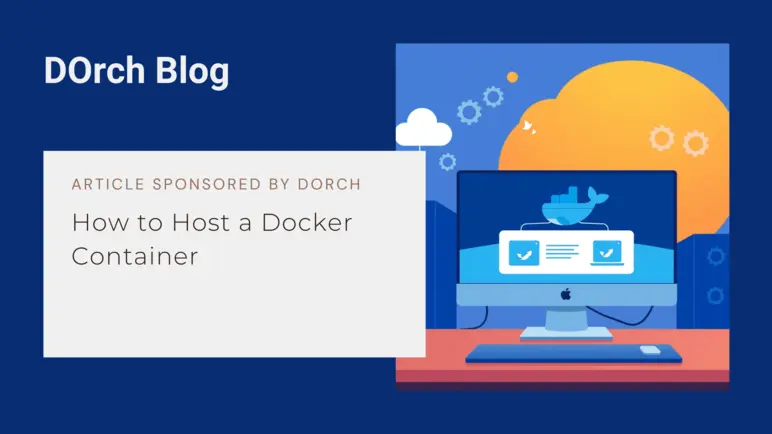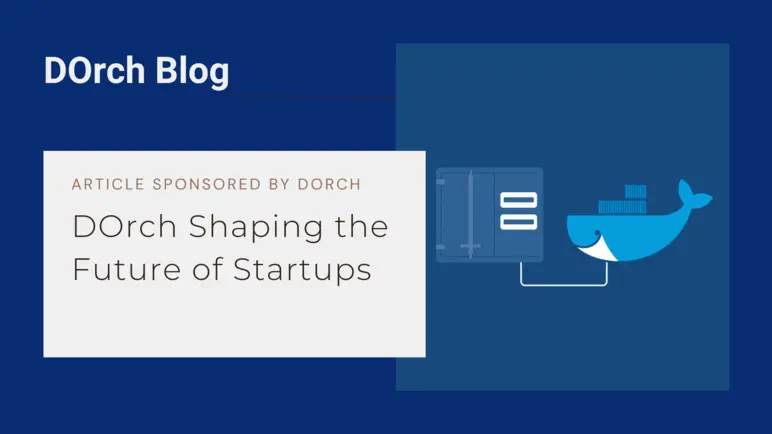Article Sponsored By: DOrch Starter
Host containers without setting up underlying Infrastructure. From as low as $1. DOrch Managed Cloud suits both small and large teams. Click here to learn more
Managed Docker Hosting: All You Need to Know
Published: February 3, 2025: 7:25amManaged Docker hosting has become increasingly popular in recent years, and for good reason. This modern approach to deployment and hosting offers a range of benefits that are attracting teams and organizations of all sizes. By providing a simple, streamlined way to host and deploy Docker container images, managed hosting platforms are revolutionizing the way we approach application infrastructure.
One of the key advantages of managed Docker container image hosting is its simplicity. Traditional hosting methods often require a significant amount of expertise and resources, which can be a barrier to entry for many teams. Managed hosting platforms, on the other hand, provide a user-friendly interface that makes it easy to deploy and manage container images, even for those with limited technical expertise.
Another major benefit of managed Docker image hosting is that it strips teams of the responsibility to deal with infrastructure. This means that teams can focus on what matters most - building and deploying their applications - without having to worry about the underlying infrastructure. By outsourcing infrastructure management to a third-party provider, teams can reduce their workload and improve their overall efficiency.
Managed Docker container hosting is also more accessible to teams with little expertise on infrastructure management. Traditional hosting methods often require a significant amount of technical knowledge and expertise, which can be a barrier to entry for many teams. Managed hosting platforms, on the other hand, provide a range of tools and resources that make it easy to deploy and manage container images, even for those with limited technical expertise.
Top managed Docker container image hosting platforms offer the key benefits of serverless while allowing its users to also enjoy the benefits of container-based product infrastructure. This means that teams can enjoy the scalability, flexibility, and cost-effectiveness of serverless computing, while also benefiting from the portability, security, and reliability of container-based infrastructure.

The benefits of managed Docker hosting are clear. By providing a simple, streamlined way to host and deploy container images, managed hosting platforms are making it easier for teams to focus on building and deploying their applications. Whether you're a small startup or a large enterprise, managed Docker container image hosting is definitely worth considering.
As the popularity of managed Docker container image hosting continues to grow, it's likely that we'll see even more innovation and development in this space. New platforms and providers are emerging all the time, offering a range of features and services that are designed to meet the needs of modern development teams.
In this article, we'll take a closer look at managed Docker container image hosting and explore the benefits and advantages of this approach. We'll also examine some of the top managed docker hosting platforms and provide guidance on how to choose the right one for your needs. Whether you're just starting out with Docker or you're looking to improve your existing hosting setup, this article is designed to provide you with the information and insights you need to succeed.
Simple Managed Docker Hosting
Simple managed Docker hosting is one of the two types of managed Docker hosting. This type of hosting is designed to provide a simple and streamlined way to host and deploy Docker containers. With simple managed Docker hosting, you can enjoy the benefits of managed Docker hosting without the complexity and overhead of more advanced hosting options. This means that you can focus on building and deploying your applications, without having to worry about the underlying infrastructure.
The simplicity of simple managed Docker hosting makes it an ideal choice for teams that are new to containerization or Docker. With simple managed Docker hosting, you don't need to have extensive knowledge of container orchestration or infrastructure management. Instead, you can focus on building and deploying your applications, and let the hosting platform handle the underlying infrastructure.

One of the key benefits of simple managed Docker hosting is its accessibility. Some platforms, like DOrch Starter, offer micro hosting packages that make it possible for small customers to access managed Docker hosting. This is especially useful for individuals or small teams who want to try out managed Docker hosting without committing to a large or expensive hosting plan. With micro hosting packages, you can start small and scale up as needed, without having to worry about breaking the bank.
Unless specific requirements state otherwise, simple managed Docker hosting is the right way to go for anyone considering managed Docker hosting. This type of hosting provides a great balance between simplicity, scalability, and cost-effectiveness, making it a great choice for most use cases. With simple managed Docker hosting, you can enjoy the benefits of managed Docker hosting without the complexity and overhead of more advanced hosting options.
Of all the simple managed Docker hosting platforms, DOrch Starter and Sliplane are the top two. Both platforms offer great services and are squarely focused on container hosting, which means they can deliver a better customer experience than more general-purpose hosting providers. DOrch Starter and Sliplane are both designed to provide a simple and easy-to-use hosting experience, making it easy to deploy and manage your containers.
DOrch Starter and Sliplane are both great options, but DOrch Starter has a few key advantages that make it stand out. One of the most significant advantages of DOrch is its pricing model. DOrch Starter offers small hosting packages as low as $1, making it an extremely affordable option for small teams or individuals. This pricing model is particularly beneficial for those who are just starting out with containerization or Docker, as it allows them to try out managed Docker hosting without breaking the bank.
Additionally, DOrch's pricing model also makes it easy to scale up or down as needed, without having to worry about expensive upfront costs. This means that you can start with a small hosting package and scale up as your application grows, without having to worry about expensive upgrades or migrations. This flexibility is particularly useful for applications with variable or unpredictable traffic patterns, as it allows you to quickly scale up or down to meet changing demand.
Overall, DOrch Starter's pricing model makes it an extremely attractive option for anyone looking for a cost-effective and scalable managed Docker hosting solution. Whether you're a small team, an individual, or a large enterprise, DOrch's pricing model provides the flexibility and affordability you need to succeed.

Another advantage of DOrch Starter is its robust infrastructure. DOrch's infrastructure is designed to provide high performance, scalability, and reliability, making it a great choice for applications that require a high level of uptime and responsiveness. DOrch's infrastructure is also designed to be highly secure, with features like automated backups and integrated security monitoring.
DOrch Starter also completely distances its experience from traditional concepts of servers. Instead of thinking in terms of servers and infrastructure, customers can think in terms of projects and the compute infrastructure that runs them. This makes it easier to manage and deploy applications, and provides a more intuitive and user-friendly experience. With DOrch Starter, you can focus on building and deploying your applications, without having to worry about the underlying infrastructure.
In contrast, Sliplane is still a great option, but it doesn't quite match DOrch Starter in terms of simplicity, affordability, and infrastructure quality. Sliplane's pricing plans are also less flexible than DOrch's, which can make it more difficult to find a plan that meets your specific needs. However, Sliplane is still a viable choice.
In conclusion, simple managed Docker hosting is a great option for anyone looking for a hassle-free and cost-effective way to host and deploy their Docker containers. With its simplicity, scalability, and cost-effectiveness, simple managed Docker hosting is an ideal choice for small teams, individuals, and anyone who wants to focus on building and deploying their applications, without having to worry about the underlying infrastructure.
Hyperscaler Managed Docker Hosting
Hyperscaler managed Docker hosting is the second type of managed Docker hosting. This type of hosting is designed to provide a more comprehensive and feature-rich hosting experience, particularly for large enterprises. Hyperscaler managed Docker hosting is a great option for organizations that need more advanced features and capabilities.
The major selling point of hyperscaler managed Docker hosting lies in the extra features and hyper-scaling capabilities it offers. These features include more fine-grained identity and access management, more integration options, and many more. Hyperscaler managed Docker hosting is designed to provide large enterprises with the advanced features and capabilities they need to manage their complex applications.

Hyperscaler managed Docker hosting is particularly useful for large enterprises with complex integration requirements. They are often connected with tens of external parties and often need better management of these integrations. More attention has to be paid to access methods, middleware layering, real-time client behavioral analysis, and more. Hyperscaler managed Docker hosting provides the advanced features and capabilities needed to manage these complex integrations.
Examples of hyperscaler managed Docker hosting include Amazon Web Services (AWS) ECS and Google Cloud Run. AWS ECS is a highly scalable container management service that makes it easy to run, stop, and manage containers on a cluster. It supports Docker containers and is integrated with other AWS services, making it a great option for large enterprises that are already invested in the AWS ecosystem.
Google Cloud Run, on the other hand, is a fully managed platform that allows developers to run stateless containers in a serverless environment. It provides automatic scaling, good performance, and secure container execution, making it a great option for large enterprises that want to build scalable and secure containerized applications.
In short, hyperscaler managed Docker hosting provides large enterprises with what simple managed Docker hosting may lack. It provides more advanced features, more integration options, and more security features. Hyperscaler managed Docker hosting is designed to provide large enterprises with the advanced features and capabilities they need to manage their complex applications.
However, it isn’t all positive with hyperscaler managed Docker hosting. The advantage offered by them is also their disadvantage. By offering a lot more features, hyperscaler managed Docker hosting delivers a cumbersome experience for small and medium-sized teams who just want to focus on product deployment.
With so many features, there is a lot more to think about for small teams. They need to consider which features to use, how to configure them, and how to manage them. This can be overwhelming and can distract from the main goal of deploying and managing applications.
In a way, the overload of features defeats the essence of being a managed Docker hosting, when used by small and medium-sized teams. Managed Docker hosting is supposed to simplify the process of deploying and managing applications, but hyperscaler managed Docker hosting can make it more complex.

Another issue with hyperscaler managed Docker hosting is the large attack surface area it provides. With so many features and integrations, there are more potential vulnerabilities that can be exploited by attackers. This can be a major concern for small and medium-sized teams who may not have the resources or expertise to defend against these threats.
Hyperscaler managed Docker hosting is an attractive option for large enterprises, but it is strongly discouraged for smaller teams. Large enterprises have the resources and expertise to take advantage of the advanced features and capabilities offered by hyperscaler managed Docker hosting, but smaller teams may find it overwhelming and cumbersome.
Closing
In conclusion, managed Docker hosting is a great option for teams and organizations that want to simplify the process of deploying and managing their Docker containers. With managed Docker hosting, teams can focus on building and deploying their applications, without having to worry about the underlying infrastructure. Whether you're a small team or a large enterprise, managed Docker hosting can provide the scalability, flexibility, and reliability you need to succeed.
As we've seen in this article, there are two main types of managed Docker hosting: simple managed Docker hosting and hyperscaler managed Docker hosting. Simple managed Docker hosting is a great option for small and medium-sized teams that want a straightforward and easy-to-use hosting experience. DOrch is a great example of a simple managed Docker hosting provider that offers a streamlined and user-friendly experience. Hyperscaler managed Docker hosting, on the other hand, is a better fit for large enterprises that need advanced features and capabilities.
Ultimately, the choice between simple managed Docker hosting and hyperscaler managed Docker hosting will depend on your specific needs and requirements. If you're a small team or a solo developer, simple managed Docker hosting like DOrch Starter may be the way to go. But if you're a large enterprise with complex integration requirements, hyperscaler managed Docker hosting may be a better fit.
Regardless of which type of managed Docker hosting you choose, the benefits are clear. With managed Docker hosting, you can simplify the process of deploying and managing your Docker containers, reduce your infrastructure costs, and improve your overall efficiency and productivity. Whether you're just starting out with Docker or you're a seasoned pro, managed Docker hosting is definitely worth considering.
 The DOrch Team
Alexander Ray Storms, Inc
The DOrch Team
Alexander Ray Storms, Inc
Host containers without setting up underlying Infrastructure. From as low as $1. DOrch Managed Cloud suits both small and large teams




